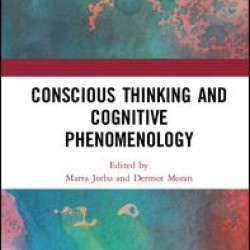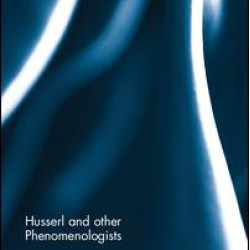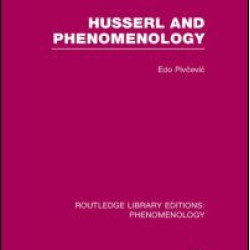Phenomenology
Brand: Taylor & Francis
Model: Stock
This book offers a concise exposition of the content theory of intentionality, which lies at the root of Husserl’s phenomenology. Originally published in 1982, the first part traces the history from Aristotle and Aquinas through Hume, to its clear formulation in Frege and Husserl; while part two ana..
₹6,902.62 ₹8,628.28
Brand: Taylor & Francis
Model: Stock
Authenticity has become a widespread ethical ideal, but this ideal has increasingly turned into aestheticism and self-indulgence. In his book, Varga constructs a critical concept of authenticity. Drawing on traditions in critical social theory, moral philosophy, and phenomenology, Varga makes the pr..
₹3,230.62 ₹4,038.28
Brand: Taylor & Francis
Model: Stock
In an enlightening dialogue with Descartes, Kant, Husserl and Gadamer, Professor Seifert argues that the original inspiration of phenomenology was nothing other than the primordial insight of philosophy itself, the foundation of philosophia perennis. His radical rethinking of the phenomenological me..
₹2,643.10 ₹3,303.88
Brand: Taylor & Francis
Model: Stock
Cognitive psychology developed out of information-processing models, whereas phenomenological psychology is rooted in a philosophical perspective which avoids the assumptions of positivist methodology. This book, originally published in 1995, illustrates how the two disciplines overlap and complemen..
₹2,643.10 ₹3,303.88
Brand: Taylor & Francis
Model: Stock
This book explores conscious thought from a philosophical perspective, addressing the issue of cognitive phenomenology—the phenomenal character of thought episodes—and its relations to other aspects of conscious thought. This book was first published as a special issue of Philosophical Explorations...
₹8,812.80 ₹11,016.00
Brand: Taylor & Francis
Model: Stock
Shows how we might think about and, more importantly, live our lives in view of the inescapability of our dying. This book considers the possibility that our mortal deaths are the end of us, and asks what this might mean for our living...
₹8,078.40 ₹10,098.00
Brand: Taylor & Francis
Model: Stock
First published in 1990, this book was the first to explore Foucault's work in relation to education, arguing that schools, like prisons and asylums, are institutions of moral and social regulation, complex technologies of disciplinary control where power and knowledge are crucial. Original and chal..
₹8,812.80 ₹11,016.00
Brand: Taylor & Francis
Model: Stock
This stimulating introduction demonstrates Husserl's influence on philosophy of mind and language, on ontology and epistemology, and on philosophy of logic, mathematics and science. Essential reading for anyone interested in phenomenology, twentieth-century philosophy, and the continuing influence ..
₹8,078.40 ₹10,098.00
Brand: Taylor & Francis
Model: Stock
Husserl and Other Phenomenologists addresses the fundamental question of what is it in the phenomenology of Edmund Husserl that on the one hand enables the huge variety in the phenomenological discourse and, at the same time, necessitates relying on his phenomenology as a point of departure for thin..
₹8,078.40 ₹10,098.00
Brand: Taylor & Francis
Model: Stock
This clear and elegant introduction, first published 1970, traces Husserl’s philosophical development from his early preoccupation with numbers and his conflict with Frege to the transcendental phenomenology of his mature period. There is also a brief critical exposition of the views of Scheler, Hei..
₹6,902.62 ₹8,628.28
Brand: Taylor & Francis
Model: 9780415519038
Widely regarded as the father of phenomenology, Edmund Husserl’s Ideas puts forth his revolutionary argument for phenomenology as the foundation of all philosophy and for experience as the source of all knowledge. His work has heavily influenced some of the greatest contemporary thinkers of all time..
₹1,468.07 ₹1,835.08
Brand: Taylor & Francis
Model: Stock
Widely regarded as the father of phenomenology, Edmund Husserl’s Ideas puts forth his revolutionary argument for phenomenology as the foundation of all philosophy and for experience as the source of all knowledge. His work has heavily influenced some of the greatest contemporary thinkers of all time..
₹6,903.36 ₹8,629.20












